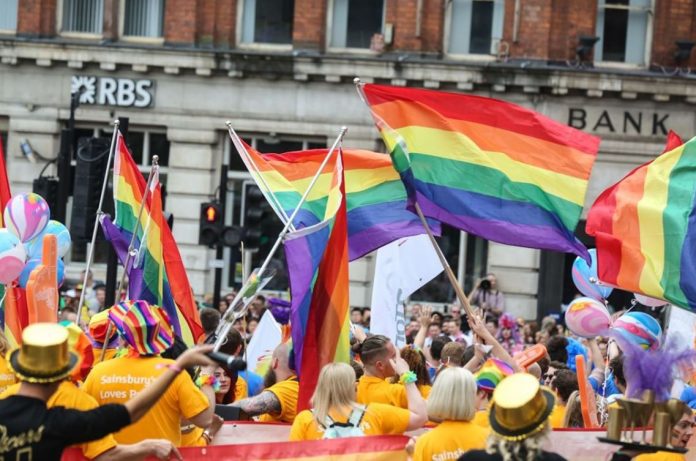To mark International Day Against Homophobia, Transphobia and Biphobia, The University of Manchester has released new research which has found that a person’s religion and ethnicity is now more strongly associated with their attitude towards homosexuality than their level of education – and that British society may be reaching ‘peak acceptance’.
A series of changes to the law including the equalisation of the age of consent in 2001, the repeal of Section 28 in 2003 and the legalisation of same-sex marriage in 2013 have given gay people equality in the eyes of the law. These changes have happened alongside a marked shift in society’s attitude towards homosexuality, which has become much more accepting.
Dr Laura Watt and Professor Mark Elliot studied data from the National Survey of Sexual Attitudes and Lifestyles to find out how people’s opinions towards same-sex relationships have changed since 1990.
They discovered that attitudes became far more tolerant between 1990 and 2010. In 2010, 27% of 16-44 year olds viewed same-sex relationships between men as always or mostly wrong compared to 60% in 1990. For female gay relationships, the numbers were 23% in 2010 compared with 58% in 1990.
While these figures show a massive rise in acceptance of same-sex relationships, since 2000 this trend significantly slowed down – suggesting Britain might see a peak level of acceptance for same-sex relationships rather than reaching blanket approval.
Watt and Elliot also observed huge differences in the attitudes of certain groups. In 2010, 58% of Black and South Asian 16-44 year olds believed same-sex relationships were always wrong (down from 67% in 1990) – in contrast, only 12% of white respondents in this age group held this view (down from 46%).
This gap is also reflected in religiosity – in 2010 60% of 16-44 year olds who attended religious services at least once a week viewed homosexuality as always wrong (down from 68% in 1990), compared with just 11% of those who didn’t identify as religious (down from 43%).
In 1990, a person’s education level was more strongly associated with their attitude towards homosexuality than either their religiosity or ethnicity – those educated to degree level were less likely to view same-sex relationships as wrong. However, by 2010 a person’s religiosity and ethnicity were more associated with their attitudes towards homosexuality than their education.
Men are also more likely than women to regard same-sex relationships (particularly between two men) as wrong.
“Evidence suggests that around 10% of people who identify as lesbian or gay still experience homophobia in the workplace,” said Dr Watt.







